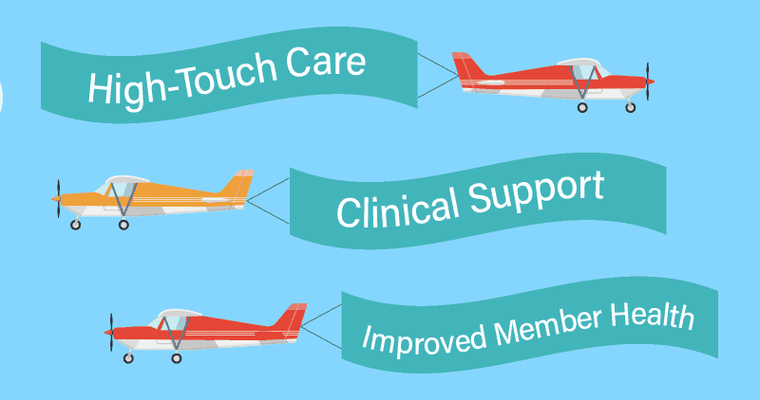Welcome back to our series on specialty drugs. This week, we will be diving into best practices for specialty patient care.

By the way, if you missed our last installment on three ways to reduce specialty costs, be sure to check it out here.
WHY IS SPECIALTY PATIENT CARE IMPORTANT?
Excellent patient care should be paramount to all specialty pharmacies – after all, the purpose of a pharmacy is to help patients manage their conditions. But patient care doesn’t just help the patient. It can also benefit the plan sponsor.
There is a common misconception that cost savings and patient care are mutually exclusive. In reality, improving patient care can actually save your organization money.
How? Improving patient care means increasing the likelihood of patients getting the correct medications, taking them correctly and continuing to take them over time. In turn, they’re less likely to experience relapses or complications and end up in the hospital or the emergency room.
What does this mean? If you’re a plan sponsor, this means you’ll pay less in medical costs and your employees will miss fewer days of work. If you’re a patient, this means you’ll experience a higher quality of life.
WHAT SHOULD I LOOK FOR?
Improving health and quality of life should be the key focus of any specialty pharmacy. Look for a specialty pharmacy that takes a proactive approach to patient education, uses empathetic communication and establishes a relationship of trust with the patient. In addition, each patient should receive a tailored care plan with outcome goals to help him/her through every treatment step.
Helping patients stay on their medication therapy is a key resource that specialty pharmacies can provide. The best specialty pharmacies offer advanced adherence programs combined with personalized support from a patient care specialist that work to encourage patients to take medications correctly which helps to slow disease progression, minimize complications and reduce additional health expenditures, such as emergency room visits. Proactive communication and collaboration with prescribers can keep physicians informed of patient status following scheduled refill consultations and other touch points.
Your specialty pharmacy should:
- Make sure patients are using their medications correctly (using evidence-based guidelines)
- Monitor patients to make sure their prescription is working properly
- Provide personalized support to help patients manage injection issues, side effects, etc.
- Ensure that patient outcomes are optimized using the most clinically appropriate and cost-effective medication
- Monitor and correct for drug interactions, incorrect doses and medication efficacy
Specialty pharmacies can do a lot more for you and your members than just dispense medications. They can provide crucial care to help patients take the correct medication, stay on their medications and reduce overall costs.
Want to learn more about what your specialty pharmacy can do for you? Download our free e-book below.






